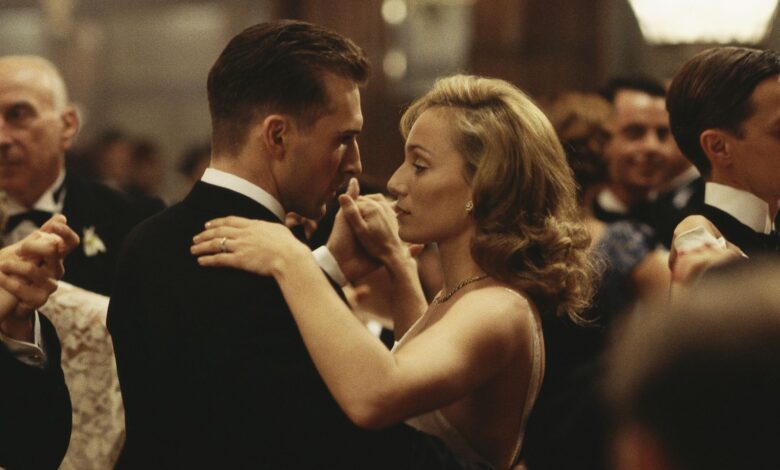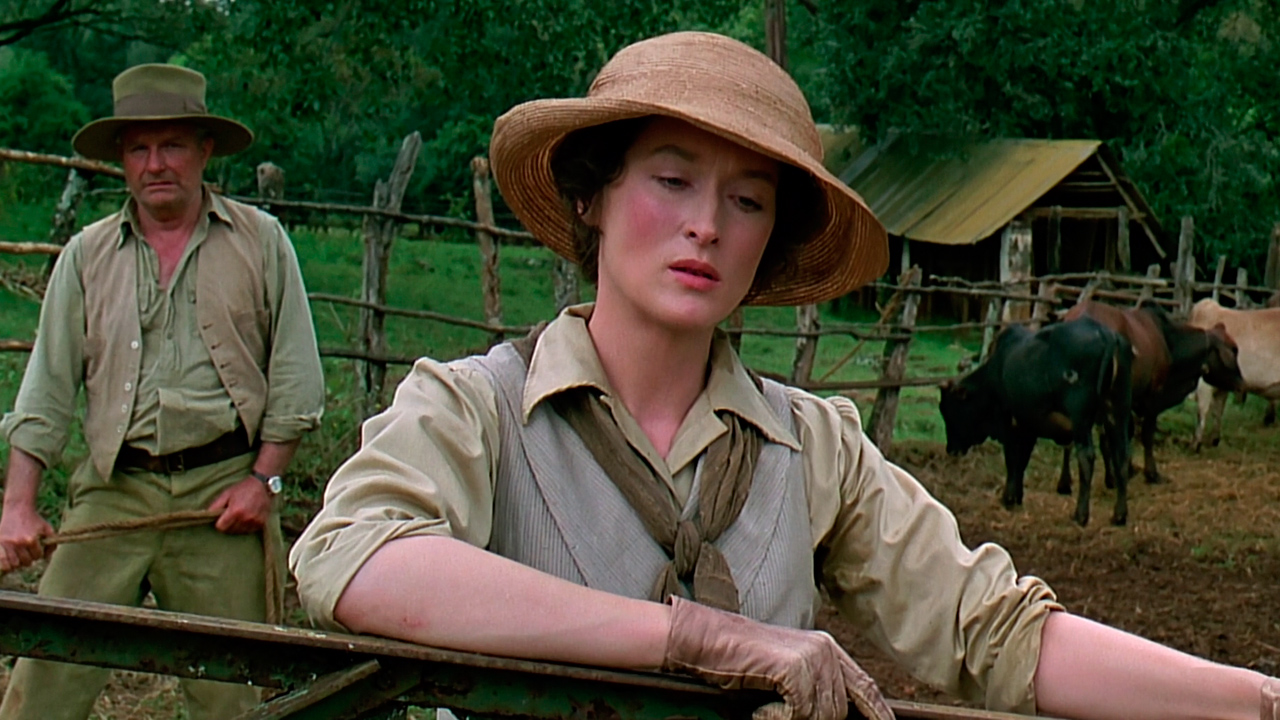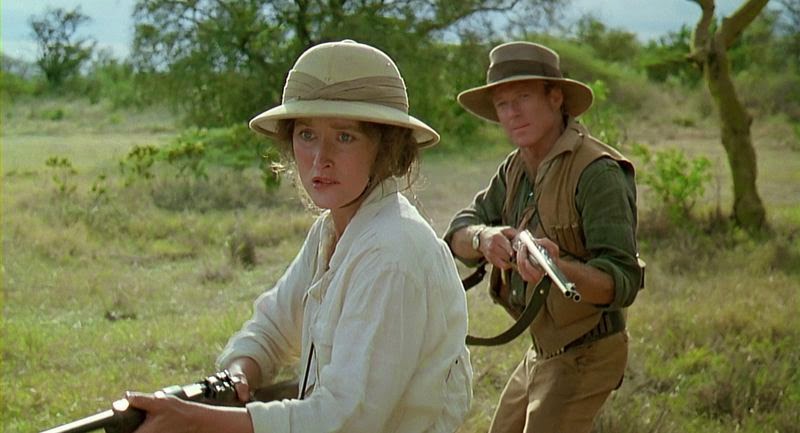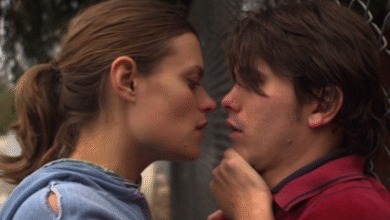Out of Africa (1985): A Love Too Vast for the World to Hold

When Out of Africa was released in 1985, few could have foreseen the quiet storm it would become—sweeping seven Academy Awards, seducing both the hearts of viewers and the sensibilities of critics. Directed by Sydney Pollack and based loosely on the autobiographical writings of Karen Blixen (under her pen name Isak Dinesen), this is not merely a romance set against the vast East African landscape. It is a meditation on longing, on exile and return, and on the tragic mismatch between human love and the wilderness of freedom.
From its opening sequence, the film invites you into an emotional state rather than a plot. It doesn’t rush to tell a story. Instead, it breathes, it listens, and it watches—as if the camera itself were in awe of memory. The tone is restrained, dignified, almost haunted. It is not a film about possession, but about presence. And ultimately, about loss.

The Land and the Woman
Meryl Streep’s portrayal of Karen Blixen is a revelation. Her Danish accent is meticulous, but more importantly, she embodies a woman who walks into Africa not as a conqueror, not even as an adventurer, but as someone fleeing a loveless world and trying to create meaning from scratch. Blixen arrives in Kenya for a marriage of convenience, bringing her aristocratic European sensibilities to a land that neither understands nor yields easily to them.
What unfolds is a nuanced transformation—not the typical colonial narrative of taming the land, but one of being undone by it. The land is not a backdrop; it is a force. As Karen tries to build a coffee plantation, she finds herself caught between the rigidity of European expectation and the natural rhythm of African life, which cares little for her plans.
The film captures this tension not through melodrama, but through quiet imagery and subtle performances. The shots of her walking alone through the savannah, or listening to the distant sounds of wild animals at night, speak louder than any dialogue. Her solitude is not only physical—it is existential.

The Man Who Would Not Be Caged
Robert Redford’s Denys Finch Hatton is perhaps one of cinema’s most elusive romantic figures. His beauty lies in his elusiveness. He is not there to save Karen, nor to complete her. He simply shares a piece of time with her, brief and burning. He is a hunter, a lover of the land, a reader of poetry, and above all—a man who refuses to be tamed.
Much has been made of Redford’s decision not to use a British accent, despite Finch Hatton being English. Some see it as a flaw, others as a subtle act of universalizing his character—turning him into a symbol of all the men (and women) who cannot be owned. There is something profoundly moving in the way Redford plays him—not with the arrogance of a hero, but with the melancholy of someone who knows how fragile happiness is.
Their relationship is filled with tenderness, but also shadows. Karen wants permanence; Denys offers only presence. She wants a home; he carries the world in a canvas bag. In one of the film’s most poignant scenes, Denys tells her, “When you go away on a safari, you don’t really go to kill anything… you go to be alone.” This is the tragedy of their love—it cannot survive the world they live in. Not because of betrayal or cruelty, but because of the irreconcilable difference in what they seek from life.

A Colonial Gaze, Unflinching and Complicated
It would be dishonest to speak of Out of Africa without acknowledging its colonial context. The film is set during a time when European powers still controlled much of the African continent, and while it avoids overt glorification of imperialism, it does not radically critique it either. The African characters—especially Farah, played with incredible grace by Malick Bowens—are given dignity, but not depth. They are seen, but rarely heard.
Yet within the framework of the story, there is a subtle reckoning. Karen’s relationship with the Kikuyu people who work on her farm is not one of superiority, but of interdependence. She is not blind to the injustices of the system she benefits from, and her decision to fight for the education of local children hints at her awakening. But this is not a redemption arc. It is simply part of her growing understanding that love—of land, of people, of ideals—cannot be imposed.
The film does not exonerate its characters. It leaves them stranded in the space between guilt and grace.
A Cinematic Elegy
If ever a score has held the soul of a film in its hands, it is John Barry’s music for Out of Africa. The soaring main theme is more than a melody—it is a cry, a lament, a remembrance. It floats over images of Karen flying over the Ngong Hills, casting a spell of longing that never quite resolves. Barry’s score doesn’t just accompany the film; it elevates it into poetry.
And then there is David Watkin’s cinematography. The light in this film is like no other—soft, golden, bruised with time. Africa is not shown as exotic, but as sacred. The camera lingers on landscapes not to impress, but to mourn. Every frame feels like a farewell.
Pollack’s direction is masterful not because it is flashy, but because it is patient. He understands that grief is not loud. It is slow and beautiful and full of shadows. He lets the silences speak.

Memory as a Map
Out of Africa is a film about remembering. It begins with loss: “I had a farm in Africa,” Karen says in the opening line, her voice already half-gone with sorrow. What follows is not the farm itself, but the way it lives in her after it is lost.
This is a film for those who have loved something too vast to hold. A person, a land, a time. It is about the kind of love that doesn’t ask to be fulfilled, only to be remembered. And in the remembering, it finds its home.
Karen Blixen, in real life, returned to Denmark and wrote Out of Africa years later. She turned her personal devastation into literature, and from literature, this film was born. There is something haunting about that alchemy—how pain can become beauty, how exile can become story.
The final scene, where she learns of Denys’ death and then leaves Africa forever, is perhaps one of the most quietly devastating in all of cinema. She buries her heart in that red earth. And though she lives many more years, the film ends where her soul remains.
Why It Still Matters
Nearly four decades after its release, Out of Africa continues to resonate—not because of its political accuracy or cultural representation, but because it taps into something universally human. The ache of impermanence. The beauty of the unfulfilled. The strange comfort of memory.
In a world increasingly obsessed with speed, clarity, and closure, Out of Africa dares to be slow, ambiguous, and unresolved. It does not offer catharsis. It offers reflection. It doesn’t tell you what to feel; it allows you the space to feel it.
For cinephiles, it stands as a rare work where the emotional and visual tones are perfectly calibrated. For writers, it is a lesson in restraint. For lovers, it is a hymn to the kind of passion that doesn’t burn down buildings, but lives quietly in the ruins.
And for all of us—it is a reminder that the most important stories are not about what we achieved, but about what we once held, even for a moment.





